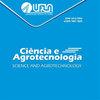蓝莓精油食用包衣工艺的优化
IF 0.9
4区 农林科学
Q2 AGRICULTURE, MULTIDISCIPLINARY
引用次数: 1
摘要
含有天然抗菌剂的可食用涂层是水果采后保鲜技术的研究热点。本研究旨在测定蓝莓可食用包衣成分和精油浓度,以优化其在蓝莓保鲜中的物理机械特性。测定了肉桂精油和柠檬精油的抑菌活性,两种精油的最低抑菌浓度均为0.3%。采用响应面法(RSM)的Box Behnken设计,确定了肉桂精油0.3%的食用涂层的最佳处理方案:芦荟凝胶18.40%,明胶2%,甘油0.055%,得到溶解度27.95%,变形0.90 mm,断裂强度3.34 N。同样,对含有0.3%柠檬精油的涂层进行同样的处理,确定芦荟凝胶23.94%,明胶2%,甘油0.05%为最佳,得到溶解度28.06%,变形0.45 mm,断裂强度4.53 N。最后,对其在Biloxi蓝莓中的应用进行了验证,与对照样品相比,在2°C下保存28天,主要的物理化学和微生物品质属性保持不变。本文章由计算机程序翻译,如有差异,请以英文原文为准。
Optimization of edible coating with essential oils in blueberries
ABSTRACT The application of edible coatings containing natural antimicrobials is a postharvest conservation technology in fruits that have generated interest. This research aimed the determination of the edible coating composition and the concentration of essential oil that allows optimizing the physical-mechanical characteristics for its application in the conservation of blueberries. The antimicrobial activity of the essential oils of cinnamon and lemon was determined, resulting in a minimum inhibitory concentration of 0.3% in both cases. After applying the Box Behnken design of the Response Surface Methodology (RSM), the optimal treatment for edible coating with cinnamon essential oil 0.3% was determined: aloe vera gel 18.40%, gelatin 2%, and glycerol 0.055% obtaining values of 27.95% solubility, 0.90 mm of deformation and 3.34 N of breaking strength. Likewise, the same procedure was followed for the coating with lemon essential oil 0.3%, determining as optimal 23.94% aloe vera gel, 2% gelatin, and 0.05% glycerol, getting values of 28.06% solubility, 0.45 mm deformation, and 4.53 N of breaking strength. Finally, their applications in Biloxi blueberries were validated, preserving the main physicochemical and microbiological quality attributes during 28 days of storage at 2 °C, compared, to a control sample.
求助全文
通过发布文献求助,成功后即可免费获取论文全文。
去求助
来源期刊

Ciencia E Agrotecnologia
农林科学-农业综合
CiteScore
2.30
自引率
9.10%
发文量
19
审稿时长
6-12 weeks
期刊介绍:
A Ciência e Agrotecnologia, editada a cada 2 meses pela Editora da Universidade Federal de Lavras (UFLA), publica artigos científicos de interesse agropecuário elaborados por membros da comunidade científica nacional e internacional.
A revista é distribuída em âmbito nacional e internacional para bibliotecas de Faculdades, Universidades e Instituições de Pesquisa.
 求助内容:
求助内容: 应助结果提醒方式:
应助结果提醒方式:


